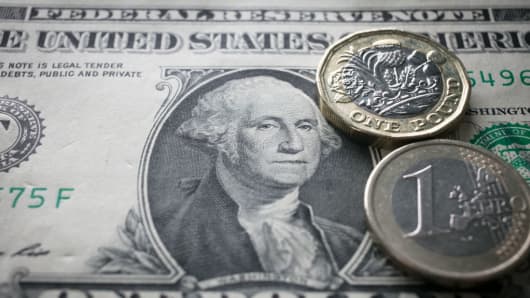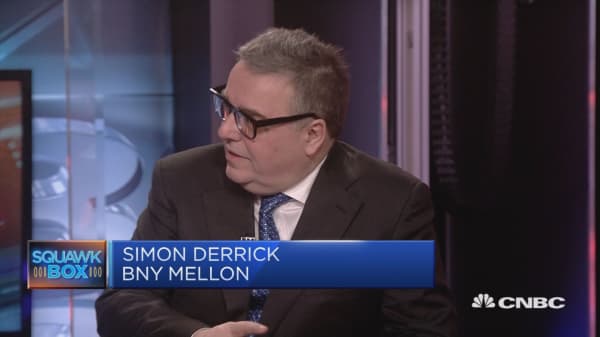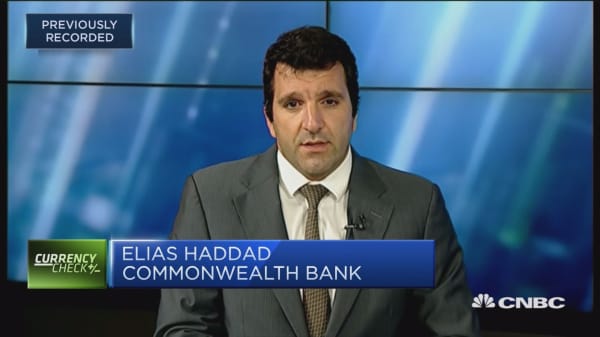All eyes are on the Federal Reserve then over the next couple of days and the smart money appears to be set on the first of three or four rate hikes this year taking place on Wednesday.
But, anyone thinking that this could be the start of a resurgent dollar might be overdoing it a little.
To recap, the Fed is the only major central bank in a tightening cycle but it seems the dollar is struggling to bounce. Rate differentials seem to be playing second fiddle to broader trade and debt concerns. Maybe even a touch of nerves surrounding the sometimes barmy behavior coming out of 1600 Pennsylvania Avenue.
Meanwhile, the European Central Bank has jaw-boned about the emergence of European green shoots and to date has done precisely zip to remove the enormous stimulus to the euro zone economy and has somehow been rewarded with a strong euro against a surprisingly lackluster dollar.
Mind you, the dollar's underwhelmingly small global appreciation society isn't the only baffling feature in currencyland. In fact, sometimes companies appear to be completely nonchalant to what a currency is supposed to do to prices.
Take Samsung's unveiling of the S9 and S9+ last week. Once again a handset manufacturer has developed a whizz-bang device rammed to the gills with innovation. Yet when it comes to selling it here in the U.K. the company's currency calculator has clearly malfunctioned.
A bit of casual price checking reveals a sterling price way above the dollar-priced version in the U.S.
Now I'm sure this is an honest mistake but last time I looked the pound was trading at $1.39 so poor old Samsung's £869 ($1,210) S9+ seems not to tally with the U.S. price of circa $840.
Has anyone told Samsung its calculator is defunct? Surely it's our civic duty to help them out on this one? Wait, is it Brexit-related? I mean surely it's not the old "Treasure Island" phenomena where the car industry used to inflate U.K. prices just because, well, just because they could.
Maybe it could use the Apple currency calculator while it sorts its own one out? At least Apple's U.K. price for the iPhone X is a mere £999 as opposed to $999 in the U.S. OK, still not quite what my $1.39 cross rate tells me it should be, but better than its South Korean rivals' skewed pricing.
Anyway, back to this week's main event with the Federal Reserve. With the U.S. economy in the strange position of receiving such a large presidential fiscal stimulus at a time of robust growth, what does this mean for the dangers of over-tightening by the central bank?
President Donald Trump and trade wars aside, all is well in the U.S. right now, no? All great except the record debt, near-record low household savings and flat retail sales over past few months, as London-based wealth manager RMG Investment points out. What could possibly go wrong?
Editor's note: A spokesperson for Samsung said the company evaluates multiple factors when determining the availability and price of new products in a given market.
For more insight from CNBC contributors, follow @CNBCopinion on Twitter.






